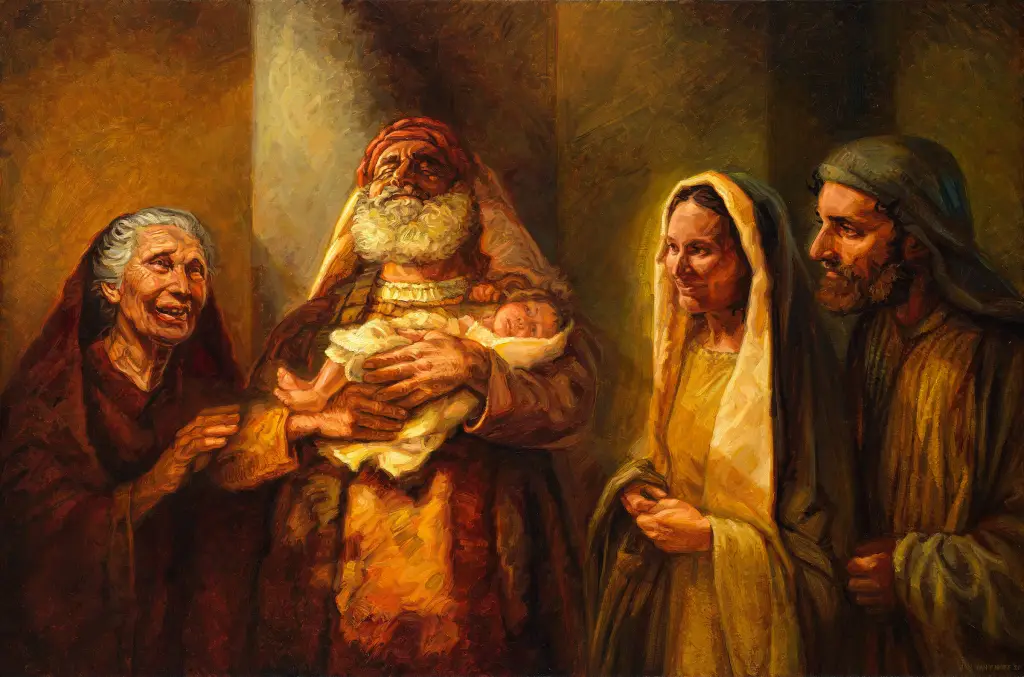Jijo Kandamkulathy, CMF
Claretian Publications, Macau
Lk: 2:22-40
FEAST OF THE HOLY FAMILY – YEAR B
According to the Jewish law, Mary and Joseph brought to the priests of the temple an animal without blemish to be sacrificed in place of their son. The rich offered a lamb, the poor a couple of turtle doves or pigeons. Mary and Joseph were poor and offered the latter.
The message is meaningful for all Christian parents. Their duty is not only to give the children an education, work, and an insertion into the fabric of civil society. They are called to a most important mission: to consecrate their children to the Lord from the earliest days of their lives. They should not subject them to special rites but to instill in them deep convictions. Educating in the faith is more than just teaching prayers and imposing the fulfillment of religious practices. It means putting in the hearts of the children the love for “the way” traveled by Jesus, to offer them to the Lord that they become builders of peace and a new world.
We know that children learn more with the eyes than with the ears. The Christian life of the parents is the best way to give catechesis to the children. If parents pray at home, the children learn to pray with them; if the parents read the Bible, the children learn to seek the light of their lives in God’s Word; if parents participate faithfully in the meetings of the Christian community, the children will follow and become committed Christians; if parents practice love, forgiveness, generosity towards the brothers/sisters, the children imitate them. That’s how Christian parents consecrate their children to the Lord.
In the second part of the passage which is the center of today’s Gospel, an old man, Simeon enters. He is described as “a just man and fears God, awaiting the consolation of Israel.” As the years pass by, bitterness often accumulates and older people like to look back to the past. They take refuge in the memory of youth; abandon themselves to melancholy and regret. Simeon teaches how to grow old. He also remembers but has no regrets, no recriminations on the present, and does not complain that “the former times were better.” He remembers God’s promises and awaits the fulfillment with unwavering confidence. He lives in the light of the Word of God, for this reason, even though he realizes that his days are coming to an end, he does not fear death. He is happy and asks the Lord to welcome him into his peace.
He talks with God and looks forward, conscious that in a short time nothing will change. However, he rejoices, contemplating the dawn of the new world. He rejoices like a farmer at the end of the season of sowing, dreams of heavy rains and abundant harvest. Simeon is not selfish. He does not think of himself, of his own advantage, but of others, of all humanity, of the joy that all will experience when the Kingdom of God is established.
Simeon’s rupture could be assimilated by any senior person in the family: “My eyes have seen your salvation, which you display for all the people to see…. Here is the light you will reveal to the nations, and the glory of your people Israel.” Simeon rejoices when he sees and takes the Messiah of God in his arms. He now offers him in the name of Israel to all peoples. This moving scene depicts the task of transmitting the faith within each family. Every generation of Christians accepts the Lord from the hands of their fathers. They hand it to the delighted children and grandchildren, so that it becomes for them the light that gives meaning to every event in life.
Prophetess Anna on the scene is a symbolic representation of Israel as her age indicates. She is eighty-four. The 12 tribes of Israel multiplied by the sabbath number 7. Anna is the symbol of the faithful remnant of Israel, the bride of the Lord. In her life, she has only one love, then lives as a grieving widow until the day she accepts Jesus as her Lord. She then again rejoices as the bride who finally finds the groom. Older people never feel useless when they live in expectation of the coming of the Lord. They can always perform many humble services that are valuable and bring joy to others.
Indebted to Fr. Fernando Armellini SCJ


 Follow
Follow


